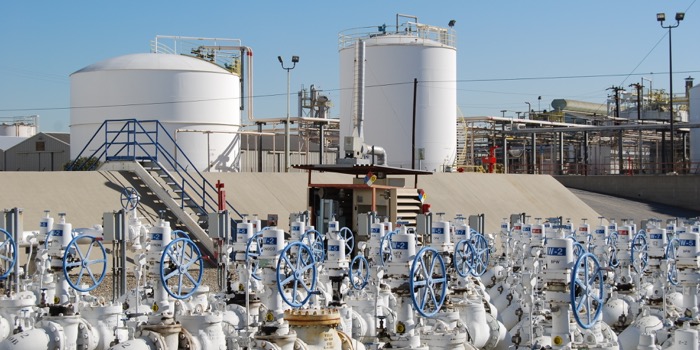Kinder Morgan (KMI) has announced plans to invest $2.4 billion in expansion projects and contributions to joint ventures in 2020. The company remains committed to maintaining a strong balance sheet it says, investing in attractive projects, and returning value to its shareholders.
Further, as was demonstrated with the sale of the TransMountain system in 2018 and the pending sale of Kinder Morgan Canada Limited in 2019, KMI continues to consider attractive divestitures when they strengthen the balance sheet and improve shareholder value.
“With the expected close of Pembina’s acquisition of the Cochin pipeline and all of KML’s outstanding shares prior to the end of 2019, we expect our year-end 2019 Net Debt-to-Adjusted EBITDA ratio to improve to 4.4 times, versus our long-term target of approximately 4.5 times. We expect the ratio to further improve to 4.3 times in 2020. This is a nice improvement from our third quarter ratio of 4.7 times,” said Steve Kean, KMI Chief Executive Officer.
“In 2020, we expect to generate $5.1 billion of distributable cash flow (DCF), which is an approximately 3 percent increase over our current forecast for 2019 DCF. Our growth is a result of expansion projects coming online, built-in contract and tariff escalators, lower interest expense and improved realised prices in our CO2 business; which is partially offset by the full-year impact of the sale of Cochin and KML, the full-year impact of the rate settlements in our Natural Gas Pipelines segment, higher sustaining capital expenditures, and lower re-contracting rates on certain Natural Gas Pipeline segment assets as well as on our crude and condensate assets. Our budget guidance assumes that the proceeds from the Pembina transactions will be used to pay down debt – creating approximately $1.2 billion of balance sheet/borrowing flexibility, representing the difference between the 4.3 times and the 4.5 times target for our Net Debt-to-Adjusted EBITDA,” continued Kean.
The balance sheet/borrowing flexibility provides KMI with attractive optionality. KMI can retain that financial flexibility or use some or all of it to repurchase shares or invest in attractive projects. The company will continue to make those choices based on shareholder value. For illustrative purposes only, using the $1.2 billion for share repurchases or to invest in projects could increase the company’s DCF/share growth to 5 or 6 per cent, respectively, assuming a full-year benefit from the repurchases or projects.
“We think that building this financial flexibility into our 2020 budget is the right decision for our shareholders,” said Kean.
For more information visit www.kindermorgan.com













